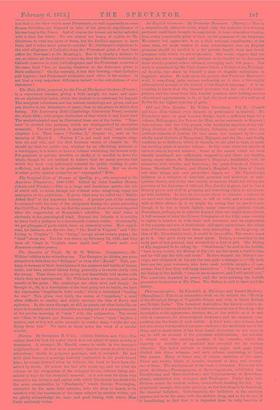The Georgics of Virgil. By H. M. Wilkins. (Longmans.)—Mr. Wilkins'
edition is for schoolboy use. The Georgics, he thinks, are more attractive to lads than the " Eclogues" or even the " /Eneid." This, per- haps, is because of their descriptions of the manners and habits of horses, cattle, and bees, natural history being generally a favourite study with the young. Then there are the pretty and beautifully told stories with which they are interspersed. Mr. Wilkins's notes are concise, and seem usually to the point. His renderings are often neat and happy. In Georgic iv., 69, in a description of the bees going out to battle, we have the expression "trepidantia belle cords.," which is translated "beating for war." This gives very fairly the notion of " trepidare," a word often difficult to render, and which conveys the idea of flurry and agitation. In the same Georgic, at 457, he points out what looks like an error in Lonsdale and Lee's translation, arising out of a misapprehension of the precise meaning of " dum " with the subjunctive. The words are "dam to fugeret per flumina prmeeps," where " dum " implies a motive, and so it is not quite accurate to render them "while she was flying from you." We have in these notes the work of a careful scholar.


































 Previous page
Previous page